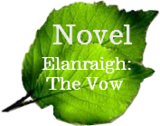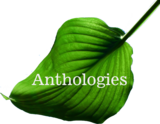Fantasy is what I love to read—so writing what
I loved to read was a natural. When I started reading fantasy in the eighties(
C.J. Cherryh, Elizabeth Moon, for example), I soon discovered that fantasy was
one genre in which I could be sure to find strong female protagonists.
Some readers of this blog may not be aware
that there was a time when it was rare to find strong female characters in
Sci-Fi and Fantasy. Author Eileen Kernaghan remembers:
“…later
(late 60’s) I discovered Phyllis Gotlieb’s lovely “Sunburst”, with its
teen-aged female protagonist, and Joanna Russ’s hard-bitten professional
assassin Alyx…what a thrill to stumble across them, and what possibilities they
opened up for women writers!”
Eileen has gone on to write eight novels,
poetry as well as non-fiction and she has received multiple awards for her
Science Fiction and Fantasy.
I enjoy
world creation, even if it’s only an “alternate earth” such as the setting in
my book, Elanraigh: The Vow. You write your own laws and set your own
boundaries. I’m very drawn to portraying
beasts of power, such as the grey wolf of Elanraigh, as thinking, intelligent
creatures that can, at will, communicate with a chosen human. (This undoubtedly
stems from the many times I’ve been convinced my cat was staring at me with
great emotive intent…feed me, pet me,
provide me warmth, I possess the keyboard…type around me…). I love the
unexpected that can always happen in a fantasy—be it a sentient forest or
reptilian humanoids.
I asked other speculative fiction writers what
drew them to the fantasy genre.
Results poured in from my writers group and blog buddies, and not too
surprisingly, they shared much in common.
One author writes, “I like to write fantasy
because I’m not restricted to real life situations and physics.”
This is interesting to consider because even
in the writer’s created world, its beings will have emotions based on the
writer’s own spectrum of knowledge acquired through the writer’s experience.
Our human reality and our dreams will shape our fantasies, and of course, this
is why our readers can connect with and care about the characters and their
story.
Author Dina Rae writes paranormal using the
mythology of differing religions: voodoo, witchcraft, angels, demons, etc.
Whereas author Linda Hays-Gibbs prefers to weave her “what-ifs” in a specific
historical era. Other authors tell me they are interested in exploring the
human spectrum of morals and values…there just happen to be past-humans (i.e.:
ghosts) in the picture.
I feel that in today’s mechanistic society we
are so often watchers who feel impotent to change or challenge the world around
us. In our fantasies we can create heroes who through courage, or just plain
perseverance, will right wrongs and make a difference. All Fantasy and
Paranormal authors crave the freedom to set their own parameters, and then love
to have their readers join them there.








